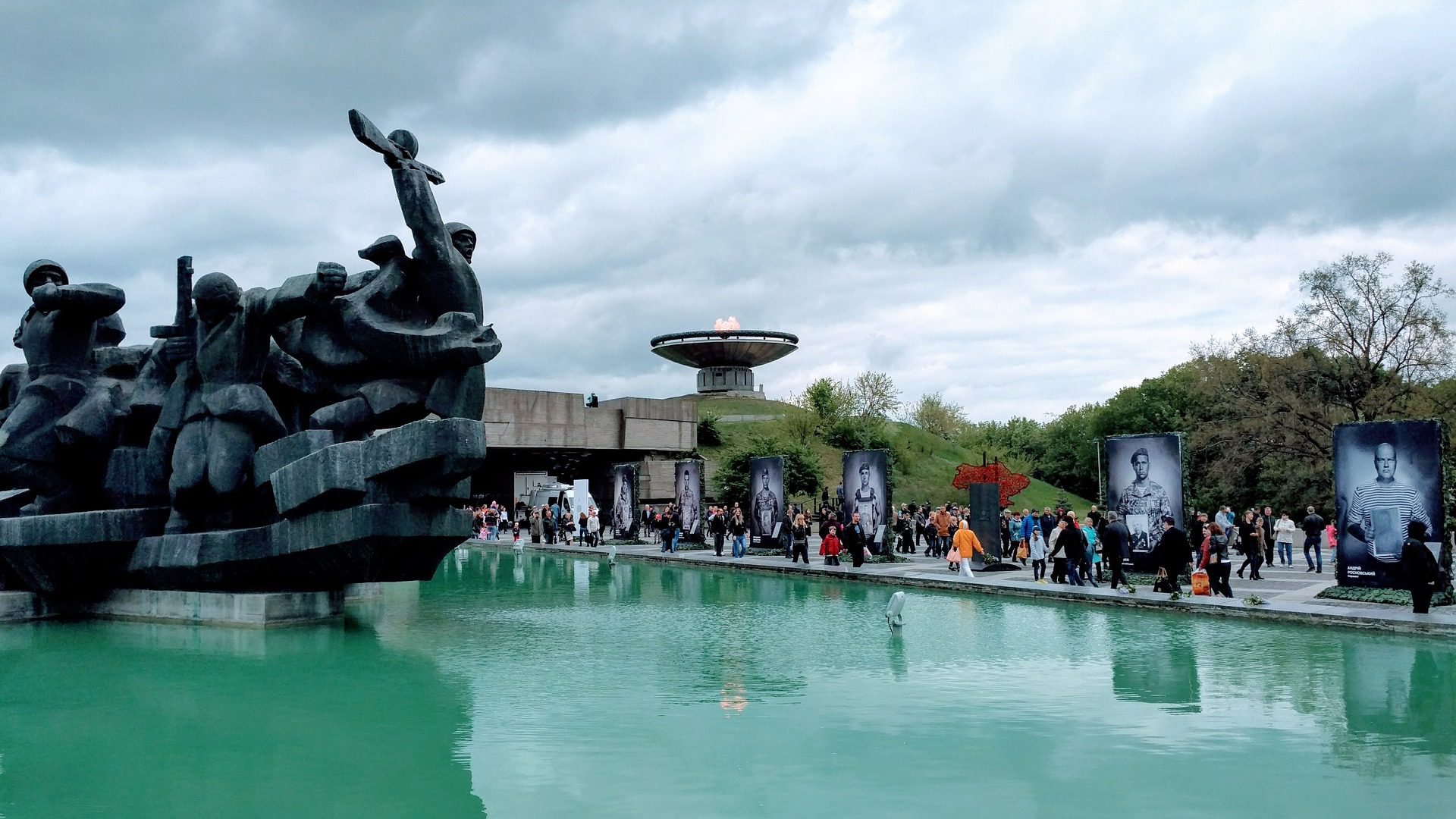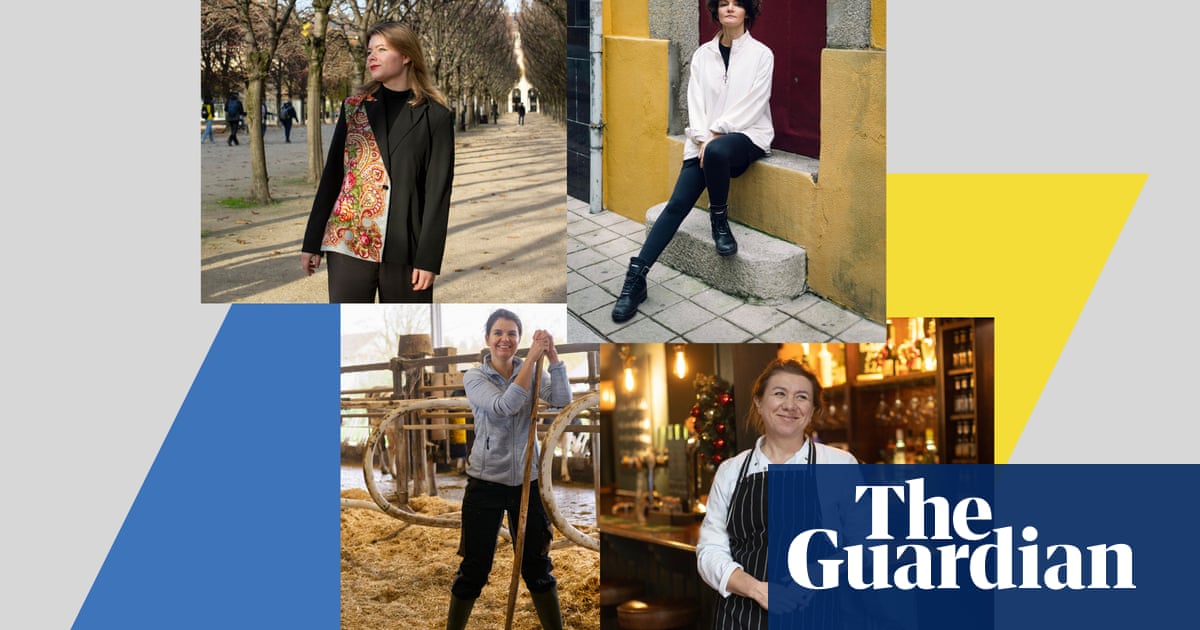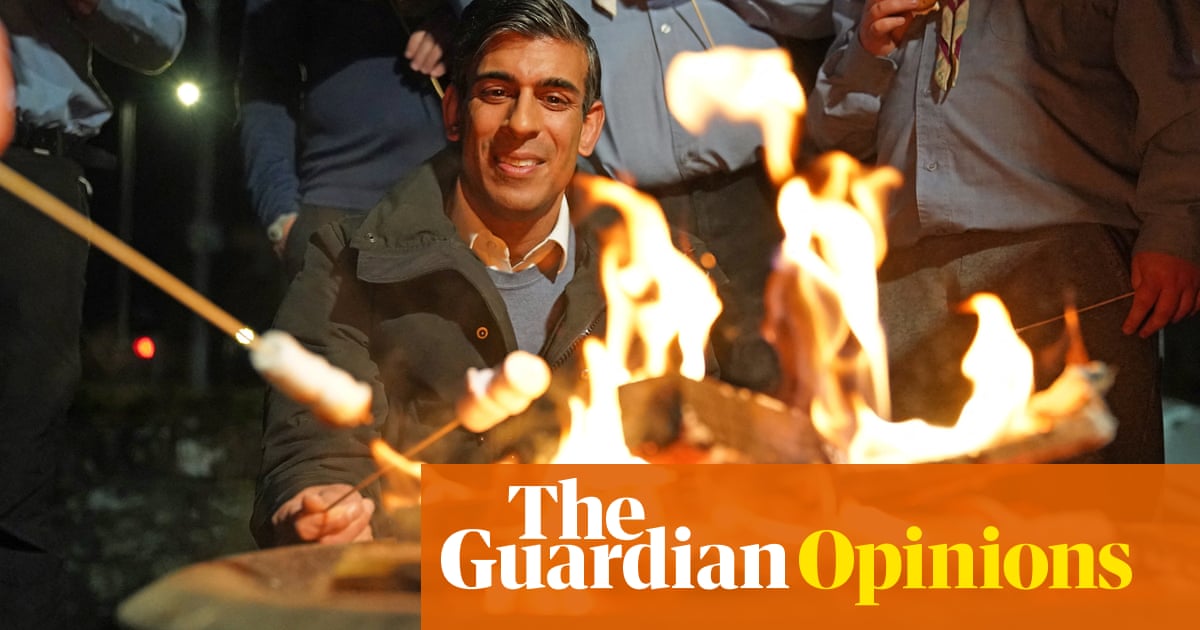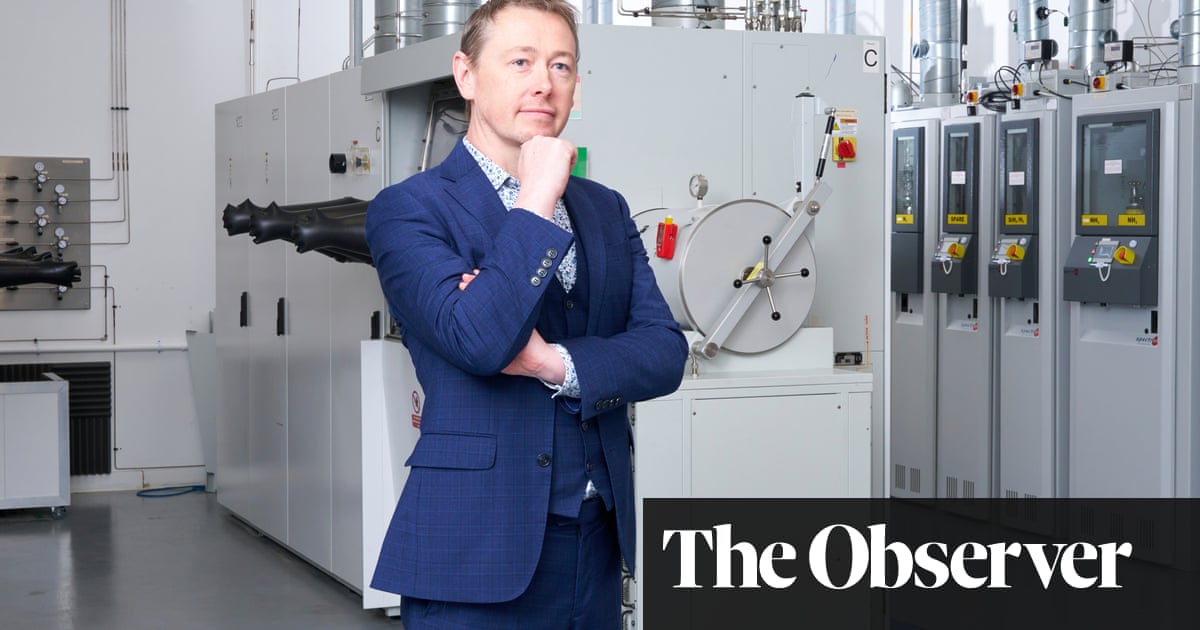
Since Russian tanks began rolling over the Ukrainian border, the international media have reported on the plight of foreign couples using paid Ukrainian surrogate mothers. Usually, these articles make scant reference to the surrogates’ wellbeing, instead being written up as breathless tales of derring-do, as plucky couples launch daring raids to bring their babies to safety.
The Irish Independent, for example, reported on a County Kerry couple who had brought their son back from Ukraine without making any reference to their surrogate, presumably left postpartum in a war zone. Sometimes, the couples appear indifferent to the plight of the women left behind: one American parent recently wrote a 1,257-word Instagram post about getting her newborn out of Ukraine in which she thanked her gym for keeping her “fit enough” to make the journey and the travel agent who had arranged her hotel, but did not make any reference to the woman who had carried her baby.
Olga Danchenko, a surrogacy lawyer from Kyiv who fled to western Ukraine with her family on the first day of the invasion, has been inundated with emails and phone calls. In their worry for their babies, many of her clients forget her own predicament. “The parents who are facing problems getting their babies don’t care about us,” she says. “They say: ‘Hi, Olga, give me the documents.’ ‘Hi, Olga, please draft this.’ ‘Hi, Olga, I need a birth certificate, I need my baby, I signed a contract with you.’ Not a single question about how I am doing.” She sounds exhausted. “We have nightmares during the day and during our dreams at night,” Danchenko says. “Can you imagine? Everything is broken in one day.”
Not everyone is focused solely on the babies. “I want to look after our surrogate,” says Annabel (not her real name), a teacher in her 40s from Suffolk. “Not just because she is carrying our baby – but because she is a human being I have formed a connection with.” Annabel and her husband have been trying for a baby for a decade. In that time, they have endured four miscarriages and the death of a prematurely born daughter. Annabel researched surrogacy carefully and picked an agency she felt was ethical. “We didn’t go into this to abuse or take advantage of anyone,” says Annabel. “We entered into an agreement with a person to change our lives – and financially we can change hers.” She considers her surrogate, a 33-year-old mother-of-one who is 12 weeks pregnant, a friend. “We made a connection straight away,” Annabel says. “It’s hard to explain what that feels like, when you meet someone who will change your life.”
Even before the war, Yana Belozor, who is 32 and lives in Kyiv, had seen how badly some surrogates are treated. A former surrogate herself, she says the agency she used to work for gave her no emotional support and that she had to chase her salary (most surrogates are paid a lump sum and then a monthly stipend). When she gave birth in 2019, she says the agency sent her to the worst hospital in Kyiv. “I still have nightmares about it,” she shudders. “I was treated like an animal. All the surrogates were placed away from the women having their own biological children and treated differently.”
Commercial surrogacy is outlawed in most of the world, although it is legal in some jurisdictions including certain US states. The Ukrainian ombudsman for children has said he believes it should also be banned in Ukraine, where an estimated 2,000 to 2,500 children are born via surrogacy each year. The human rights group La Strada receives 100 calls a year from distressed Ukrainian surrogates. “They send us their contracts so we can assess how legal they are,” says Yuliia Anosova, a lawyer for the organisation who is currently a refugee in Poland. “They’re a total disaster. Often, they’re not even legal.” She recalls one contract in which a woman was forced to relocate mid-pregnancy and told her salary would be docked if she refused.
But advocates for Ukrainian surrogacy argue that the overwhelming majority of agencies behave ethically. Before the war, says Danchenko, the system was “amazing” and acted in the “best interests of children and parents”.
Belozor became a surrogacy coordinator for another agency, Delivering Dreams, to make sure other women had a better experience than she had. “This is my calling,” she says. Before the war, she was responsible for the wellbeing of 14 pregnant surrogates, mostly in Kyiv. By law, clients – or intended parents, as they are known – must be married, heterosexual and medically unable to have children.
These couples, and their surrogates, are caught up in the unfolding humanitarian catastrophe. “Things have got insanely hard,” says Sam Everingham, an Australian fertility lawyer. He has a roster of 70 clients with Ukrainian surrogates at various stages of pregnancy. Natalie Gamble, a British fertility lawyer, is helping 23 British couples, with surrogates ranging from eight to 39 weeks pregnant, get across the border. “In every case, parents are worried about whether surrogates will be able to access medical care and give birth safely, and what will happen if the couples can’t get there when they do,” she says. “Will the babies be left in a war zone with no one to look after them?”
Compounding the chaos is the fact that few agencies expected Russia to invade, meaning that they did not make contingency plans. “The situation in Ukraine is stable,” one agency reassured clients on Facebook in late January. “There is no increased or unusual military activity.”
Belozor’s American boss, Susan Kersch-Kibler, felt differently. In the second week of February, Kersch-Kibler persuaded 13 of her 14 surrogates, and Belozor, to move to Lviv in western Ukraine. None wanted to go. “They were arguing with me,” Kersch-Kibler says. “It was hard. In the end, I had to sell it like a paid holiday.” Kersch-Kibler offered to move the surrogates’ families with them, but only two of the surrogates, and Belozor, brought their children. They thought they would be going home soon and didn’t want to uproot their families.
For now, these surrogates, at least, are safe. But, under Ukrainian martial law, male citizens aged between 18 and 60 are not permitted to leave the country. Surrogates may soon face a terrible dilemma: evacuate and leave their partners and even children behind, or remain in a country under attack. To compound their worry, their family and friends back home are not safe. Belozor’s husband is a firefighter in Kyiv. “For 11 days, he hasn’t been able to change his clothes or take a shower,” she says. “All day long, he is inhaling smoke.”
Despite her worries, Belozor keeps working. “My biggest job is to keep the women all emotionally stable,” she says. If they start to feel anxious, she takes them to a doctor, to confirm the baby is OK. The day before we speak, Belozor’s best friend from childhood, Alexi Semenyk, was shot in the head by Russian forces near Luhansk. He was 35. Like many Ukrainians, Belozor is desperate for western countries to implement a no-fly zone over the country. “The world needs to help,” she says, sobbing. “There won’t be any peace in this world, because Putin is so sick and unpredictable and dangerous.”
Annabel’s surrogate and her son are now safe in Poland. The journey took three days. “She told us when she got on the train, but then her battery died,” says Annabel. “I was literally sick with fear for her and her son. You’re watching the news to see if there have been any attacks on trains, or at the border. When I got her message to say she’d crossed the border, I cried.”
Annabel hopes that her surrogate will be able to join her in the UK – if that is what she wants. “We want her here so we can look after her,” Annabel says. “And not just until the baby is born. We want to look after her until she can go home, or wherever she chooses for home to be. If she chooses to stay here, then we will help establish her here.” Annabel and her husband will drive to Poland to collect their surrogate and her son, if they can get them emergency travel documents and she is willing.
However, there are no legal routes for surrogates and their families to resettle in the UK. Ukrainians are allowed entry only if they have family members already resident. (A mooted “humanitarian route” has become mired in confusion.) By contrast, Ireland has removed entry requirements for Ukrainian refugees. “This is a small group of women who are carrying British children,” says Gamble. “The UK has a responsibility to protect them.” Gamble wrote to the home secretary recently, asking her to make provision for surrogates who are pregnant with British children, and their families, to come to the UK. The Home Office has not responded.
Relatively speaking, Annabel is lucky. Some non-Ukrainian couples have lost contact with their surrogates. “I’m totally heartbroken and losing it,” writes one on a Facebook group. “The agency … is not responding to my emails … I do not have direct contact with the surrogate so I’m unable to reach her. Not sure if she’s OK. Would like to do anything I can to help her and her daughter.”
Fabiana Marcela Quaini, an Argentinian lawyer, knows of one client who has lost contact with their surrogate, who is due to give birth next week. Kersch-Kibler and her team are assisting surrogates and parents contracted to other agencies. “We’re trying to help anyone in this situation,” she says. “The parents are desperate to contact the surrogates. One surrogate got in touch to say that her agency was trying to make her get an abortion and she couldn’t get in contact with the intended parents.”
Kersch-Kibler understands the parents’ despair. All of the couples using Ukrainian surrogates have tried for years to have families. “This is their last chance,” she says. “For them, that child is precious beyond all words. It’s hard for them to cope with the pictures on TV, knowing their child is in the same country.” Some clients are catastrophising. “I only sleep a few hours a night,” says Jorge, a 48-year-old lawyer from Buenos Aires. He was in a WhatsApp chat with 60 people in the same situation, but left the group. “The group was making me really crazy,” he says. “I can’t avoid watching the news, but the group was too much.”
Jorge and his wife tried unsuccessfully to have a baby for a decade. Their surrogate, Katerina, is four months pregnant. She is in Kyiv with her husband and sons and is unable to find a safe route out of the city. “I can’t imagine how a pregnant woman can live in a war with explosions,” says Jorge. “For this reason, I’d prefer for her to come to Argentina, but I can’t decide for her. She’s free. She’s not a slave.”
Because Katerina doesn’t speak Spanish and Jorge doesn’t speak Ukrainian, they usually communicate via the agency, but Jorge is trying not to hassle staff there. “I don’t want to disturb them by calling all the time,” he says. “They’re in a war and I have respect. I know the men at the agency have to take up guns to defend their country.”
Dmytro Pugach, a 48-year-old fertility lawyer from Kyiv who is coordinating the evacuation of dozens of surrogates, is one of these men. “I have to combine work for life and work for death,” he emails. “I’m helping pregnant surrogates to deliver safely, and fighting in the territorial defence. My Kalashnikov stands beside me as I type this.”
Surrogates are being allowed to exit Ukraine with minimal documentation. But this exodus has significant legal ramifications. Under Ukrainian law, intended parents are automatically viewed as the legal parents of children born via surrogacy, but this does not apply in the UK, Ireland or much of Europe. “Some embassies are friendly to surrogacy, but in Austria and Germany surrogacy is not permitted,” says Danchenko. “Parents and surrogates need documents that it’s impossible to provide, as administrative offices are closed.”
Parents don’t understand why they can’t fly their babies home without documents. “They are aggressive,” says Danchenko. “They cry. They say: ‘Give me my baby.’ I ask about their documents and they don’t care. I’m a lawyer. What am I supposed to do without documents? That is human trafficking.”
Of course, not everyone can leave. One of Pugach’s surrogates is in a town that has been blockaded by Russian forces. She is trapped. Should she need medical attention, her options may be limited. Hospitals and clinics have been attacked. A maternity hospital in the city of Zhytomyr was bombed on 1 March; a Kyiv maternity hospital was hit the day after. On 9 March, a maternity and children’s ward at a hospital in Mariupol was reportedly destroyed by a Russian air strike. At the time of publication, fatalities were not confirmed, but unverified reports indicated that children were buried under the rubble.
It is a terrible situation for all involved – and unlikely to be resolved soon. “I pray for the health of Katerina, her sons and her family,” says Jorge. He can’t stop thinking about the last time he saw her, in Kyiv. She was walking to a tram stop, holding a box of chocolates. “I will always remember that image,” Jorge says. “Kyiv was beautiful and peaceful. Now, on the news, I can’t believe what I see.”












